Top 7 Countries With The Highest Gold Reserves In The World
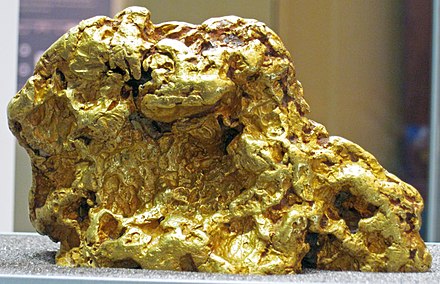
Gold has always been considered a valuable and precious metal. Its rarity and unique characteristics have made it a popular commodity for many purposes, including jewelry, investment, and as a store of value. For centuries, gold has been a symbol of wealth, power, and prosperity. Today, many countries hold large gold reserves as a way to protect their financial position and promote their economic interests.
In this article, we will look at the top seven countries with the highest gold reserves in the world as of 2021. We will examine their history of gold accumulation, the locations where their gold reserves are held, and the reasons why they hold such large reserves of the precious metal.
The United States, Germany, Italy, France, Russia, China, and Switzerland are the countries that make up the list of the top seven countries with the highest gold reserves. While the reasons for holding gold reserves may vary from country to country, it is clear that gold remains an important asset in today's global economy. As we delve into the details of each country's gold reserves, we will gain a better understanding of why gold continues to be a highly sought-after commodity in the modern world.
- United States - 8,134.0 tonnes
- Germany - 3,362.4 tonnes
- Italy - 2,451.8 tonnes
- France - 2,436.0 tonnes
- Russia - 2,298.1 tonnes
- China - 1,948.3 tonnes
- Switzerland - 1,040.0 tonnes
Top 7 Countries With The Highest Gold Reserves
1. United States
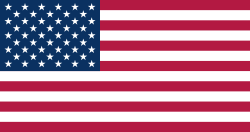
The United States currently holds the largest gold reserves in the world, with a total of 8,133.5 tonnes of gold. This represents approximately 77% of the country's foreign reserves. The US gold reserves are held in various locations such as the Fort Knox Bullion Depository in Kentucky, the Denver Mint, and the West Point Mint.
The US government started building its gold reserves during the 1930s and 1940s, when the country went off the gold standard and began to accumulate gold as a way to strengthen its currency. Today, the US gold reserves serve as a crucial element in the country's monetary policy and its ability to respond to financial crises.
2. Germany
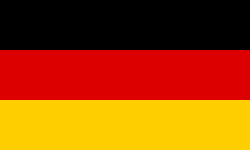
READ ALSO » Top 8 Countries With The Highest Diamond Reserves In The World
Germany is the second-largest holder of gold reserves in the world, with a total of 3,362.4 tonnes of gold. This represents approximately 74% of the country's foreign reserves. Germany's gold reserves are held in various locations, including the Federal Reserve Bank of New York, the Bank of England, and the Bundesbank in Frankfurt.
Germany's gold reserves have a long history, dating back to the 1950s when the country started to accumulate gold as a way to rebuild its economy after World War II. Today, the Bundesbank sees its gold reserves as a way to maintain trust in the stability of the German economy and as a way to secure the country's financial position.
3. Italy
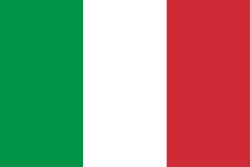
Italy is the third-largest holder of gold reserves in the world, with a total of 2,451.8 tonnes of gold. This represents approximately 69% of the country's foreign reserves. Italy's gold reserves are held in various locations, including the Bank of Italy in Rome, the Federal Reserve Bank of New York, and the Bank of England.
Italy's gold reserves have a long history, dating back to the 1860s when the country was unified under King Victor Emmanuel II. Over the years, Italy has accumulated gold reserves as a way to secure its financial position and protect against inflation. Today, the Bank of Italy sees its gold reserves as a way to ensure financial stability and to promote the country's economic interests.
4. France
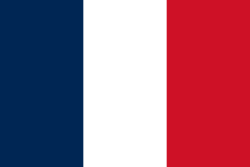
France is the fourth-largest holder of gold reserves in the world, with a total of 2,436 tonnes of gold. This represents approximately 66% of the country's foreign reserves. France's gold reserves are held in various locations, including the Banque de France in Paris and the Federal Reserve Bank of New York.
France's gold reserves have a long history, dating back to the 19th century when the country was a major economic power. Today, the Banque de France sees its gold reserves as a way to support the stability of the euro and to promote the country's economic interests.
5. Russia
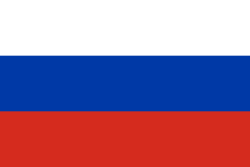
Russia is the fifth-largest holder of gold reserves in the world, with a total of 2,299.9 tonnes of gold. This represents approximately 23% of the country's foreign reserves. Russia's gold reserves are held in various locations, including the Central Bank of Russia in Moscow and the Federal Reserve Bank of New York.
READ ALSO » Top 10 Countries With Highest Salaries For Teachers In The World 2023
Russia's gold reserves have a long history, dating back to the Soviet era when the country was a major gold producer. Today, the Central Bank of Russia sees its gold reserves as a way to protect against currency fluctuations, to diversify its reserves, and to strengthen the country's financial position.
6. China
China is the sixth-largest holder of gold reserves in the world, with a total of 1,948.3 tonnes of gold. This represents approximately 4% of the country's foreign reserves. China's gold reserves are held in various locations, including the People's Bank of China in Beijing and the Federal Reserve Bank of New York.
China has been steadily increasing its gold reserves over the past decade as a way to diversify its foreign reserves and reduce its dependence on the US dollar. Today, the People's Bank of China sees its gold reserves as a way to promote the country's economic interests and to support the stability of the yuan.
7. Switzerland

Switzerland is the seventh-largest holder of gold reserves in the world, with a total of 1,040 tonnes of gold. This represents approximately 5% of the country's foreign reserves. Switzerland's gold reserves are held in various locations, including the Swiss National Bank in Bern and the Bank of England.
Switzerland has a long history of being a major center for the storage and trading of gold. Today, the Swiss National Bank sees its gold reserves as a way to support the stability of the Swiss franc and to promote the country's economic interests.
In conclusion, Gold remains an important asset for many countries as a way to secure their financial position and protect against economic instability. The top seven countries with the highest gold reserves are the United States, Germany, Italy, France, Russia, China, and Switzerland. These countries hold large reserves of gold as a way to diversify their foreign reserves, support their currencies, and promote their economic interests. While the reasons for holding gold reserves may vary from country to country, it is clear that gold continues to be a valuable and highly sought-after asset in today's global economy.
